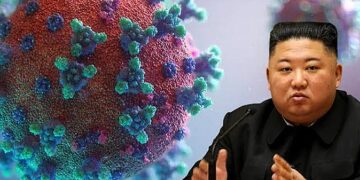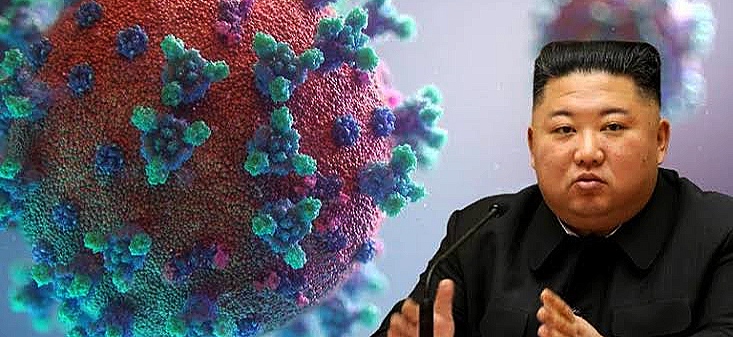By John Ikani
North Korea has ordered a strict national lockdown after confirming its first official Covid infections.
Although the size of the outbreak wasn’t immediately known, test samples collected on Sunday from an unspecified number of people in the capital, Pyongyang, confirmed they were infected with the Omicron variant, state-run Korean Central News Agency (KCNA) reported on Thursday.
The outbreak has been called the “biggest emergency incident” in North Korea on state media, with Mr Kim ordering all cities and counties of the country to “strictly lock down” their regions, with emergency reserve medical supplies mobilised.
“The state epidemic prevention work shall be switched over to the maximum emergency epidemic prevention system,” KCNA added.
North Korea has rejected any kind of vaccine programme, even when offered a supply by other countries.
Instead, it controlled Covid by sealing its borders – and had never recorded a case, despite experts believing the virus has long been present.
Outsiders say the nation’s 25 million population is vulnerable due to the lack of a Covid-19 vaccine programme, even rejecting offers from the international community to supply millions of AstraZeneca and Chinese-made Sinovac jabs last year.
There have also been concerns about North Korea’s impoverished healthcare system.
The public emergence of Covid in Pyongyang could also have repercussions on North Korea’s nuclear programme.
Satellite imagery indicates North Korea is preparing to conduct a nuclear test, and the United States has warned this could come as soon as this month.
But the Covid-19 outbreak could potentially disrupt their military program, analysts said.
“There is a possibility of delaying the nuclear test in order to focus on overcoming the coronavirus,” Yang Moo-jin, a professor at the University of North Korean Studies, told AFP.
But he said if public fears over an outbreak were to spread, Kim might go ahead with a test “to divert this fear to another place”.



































